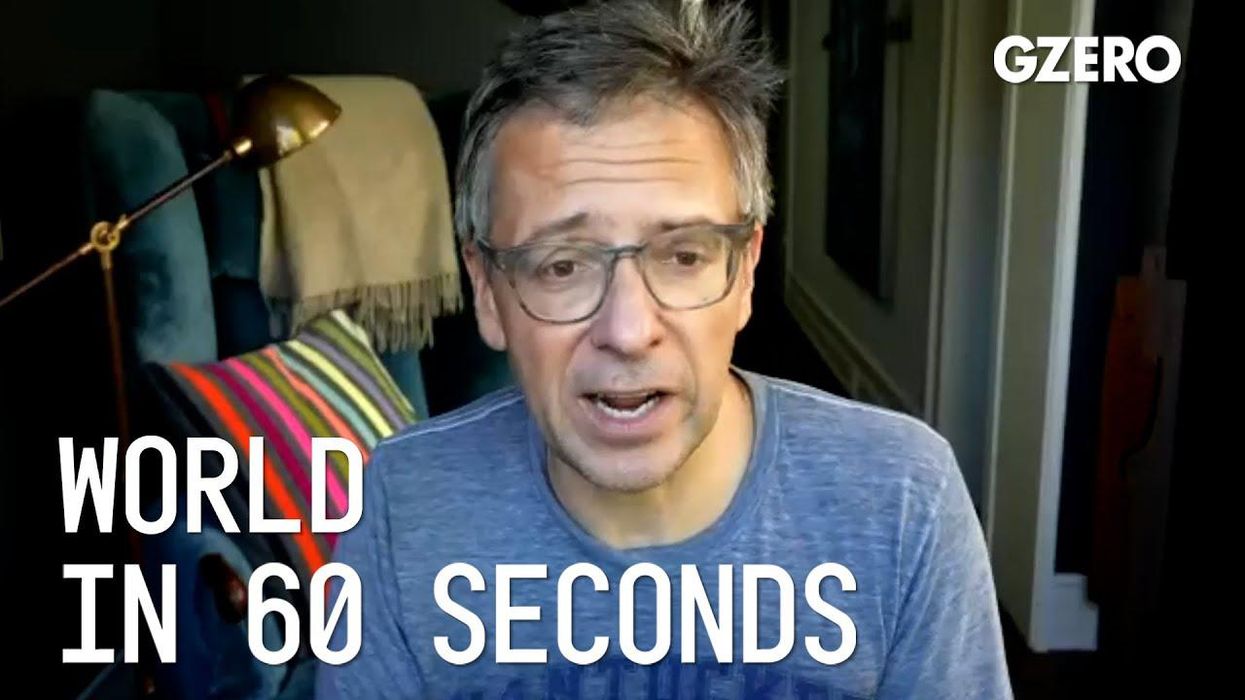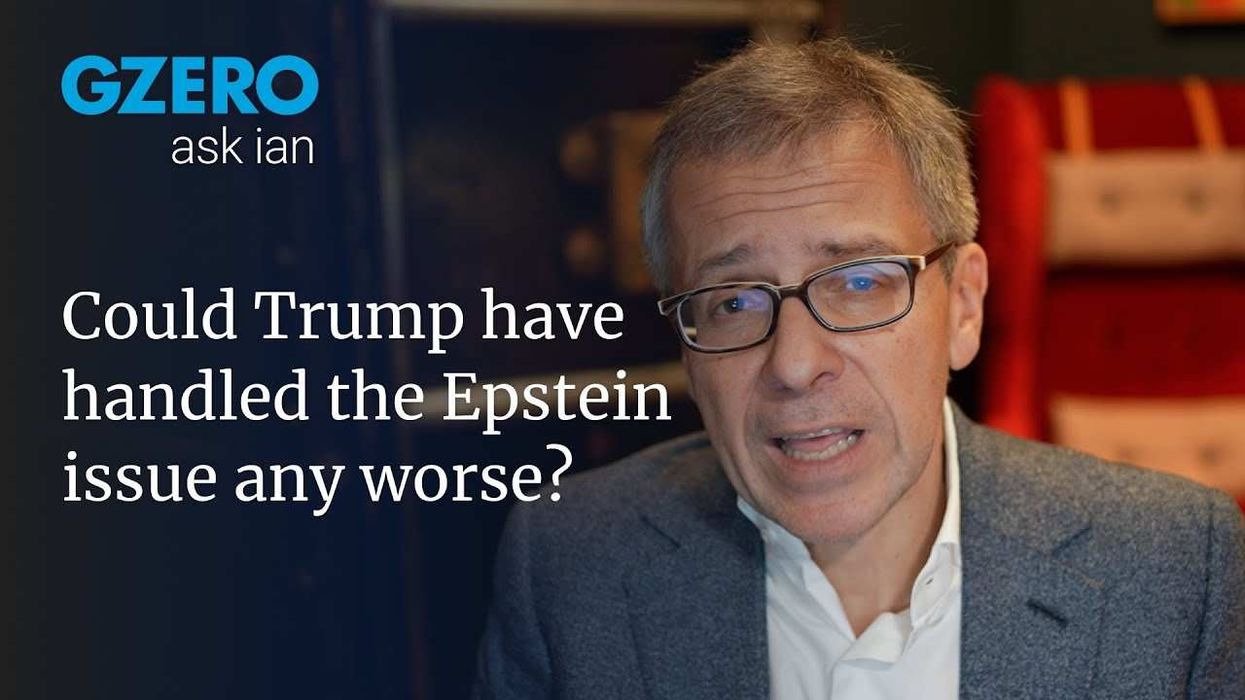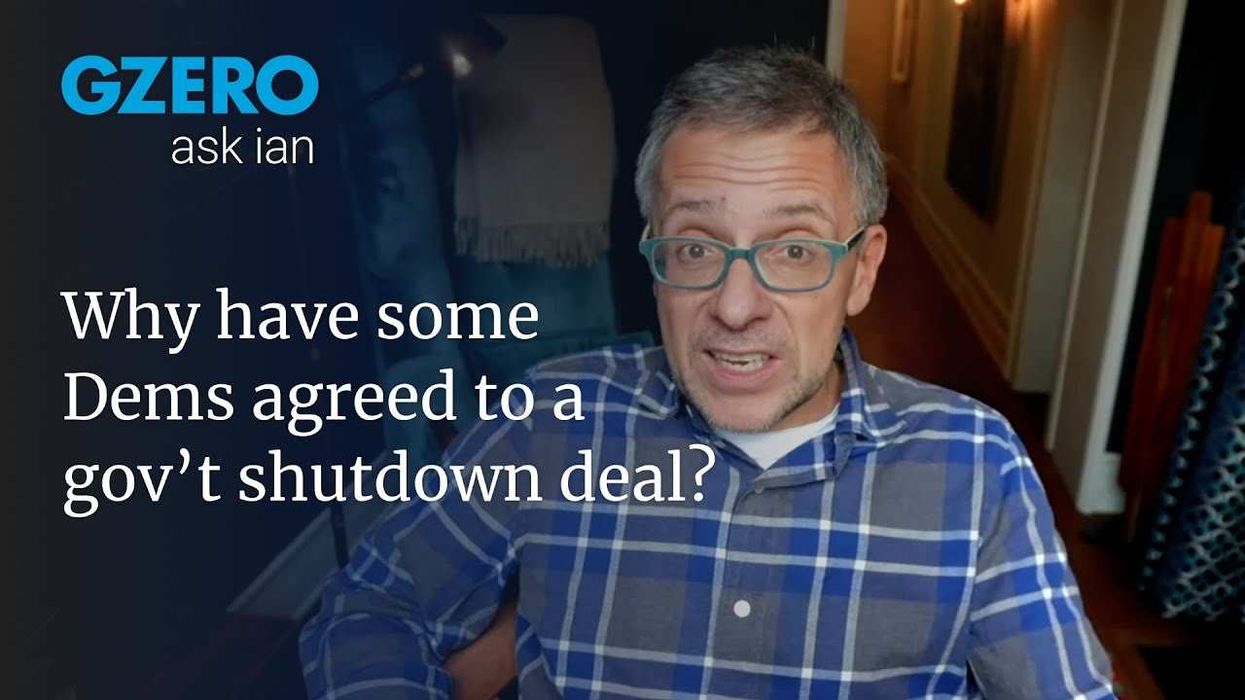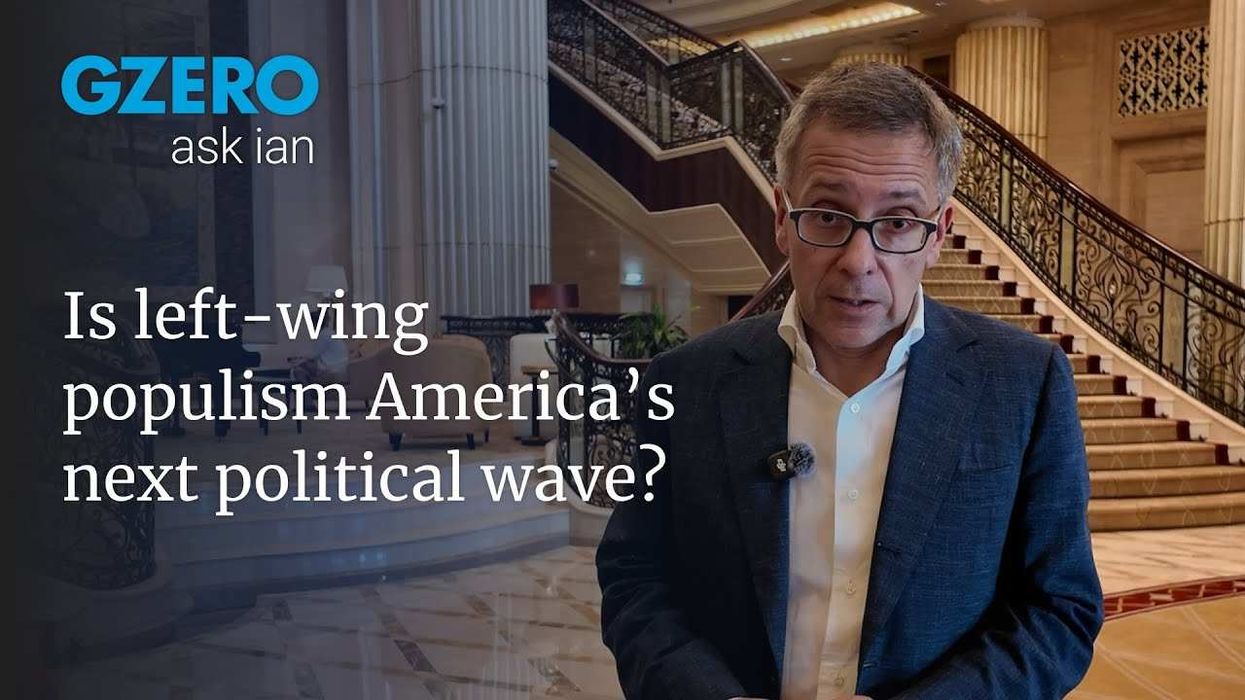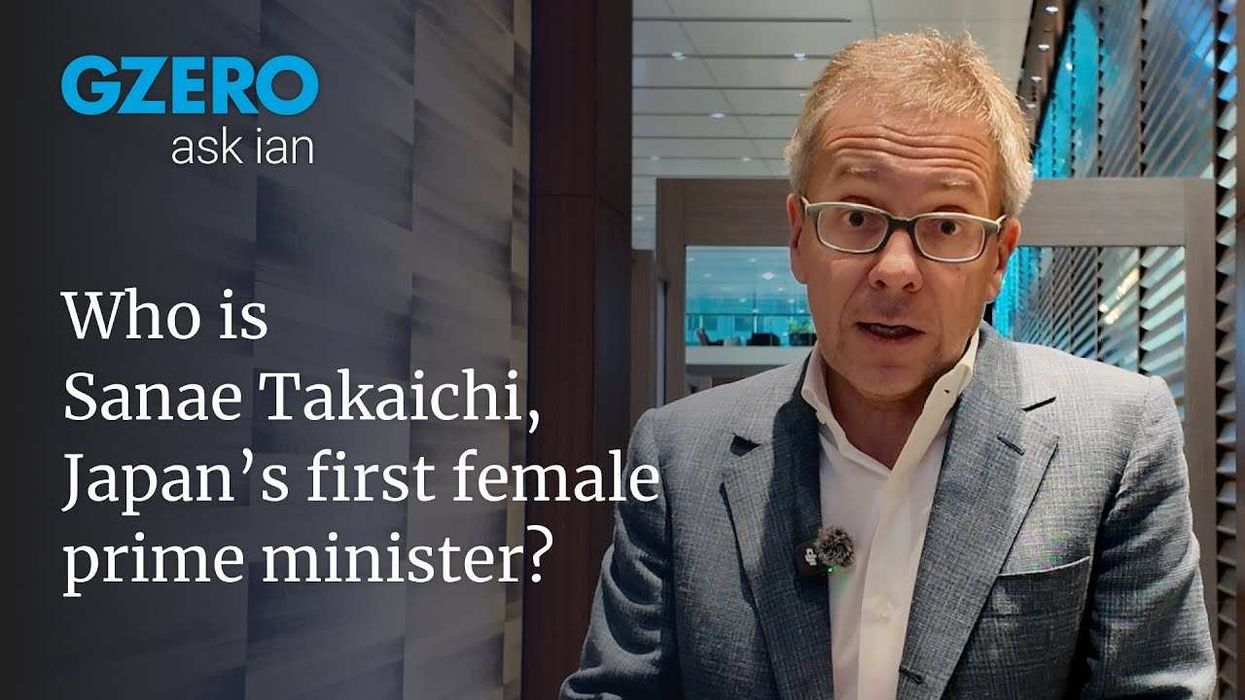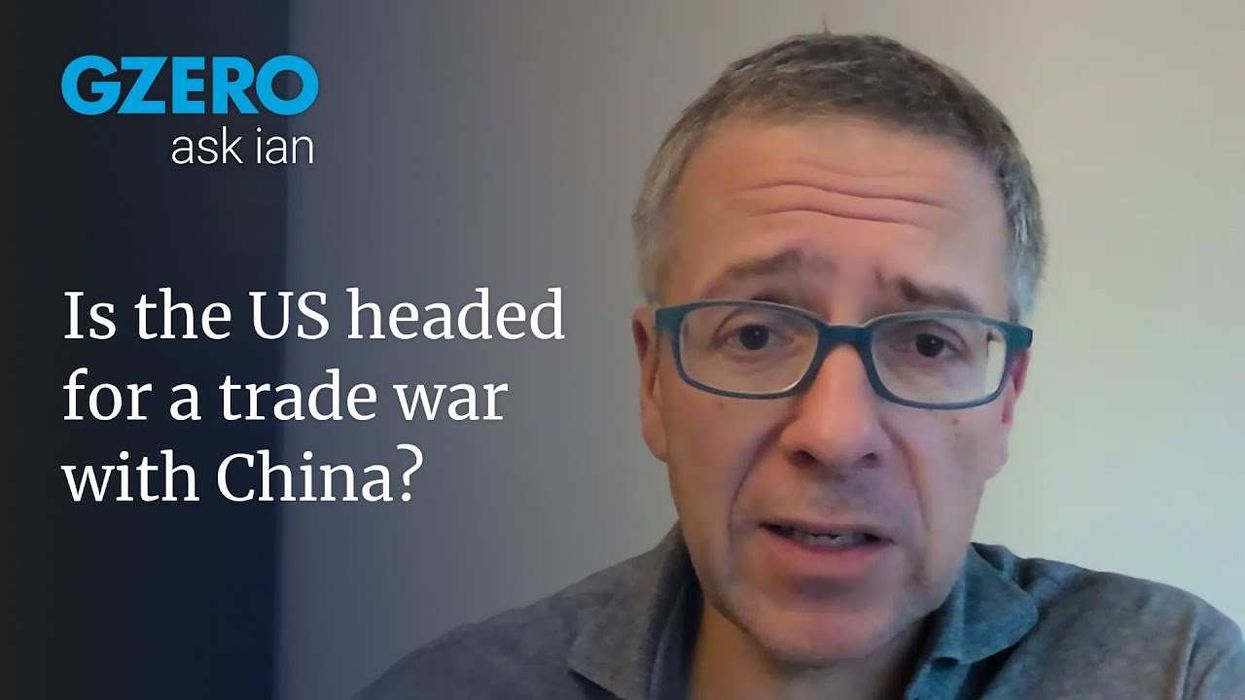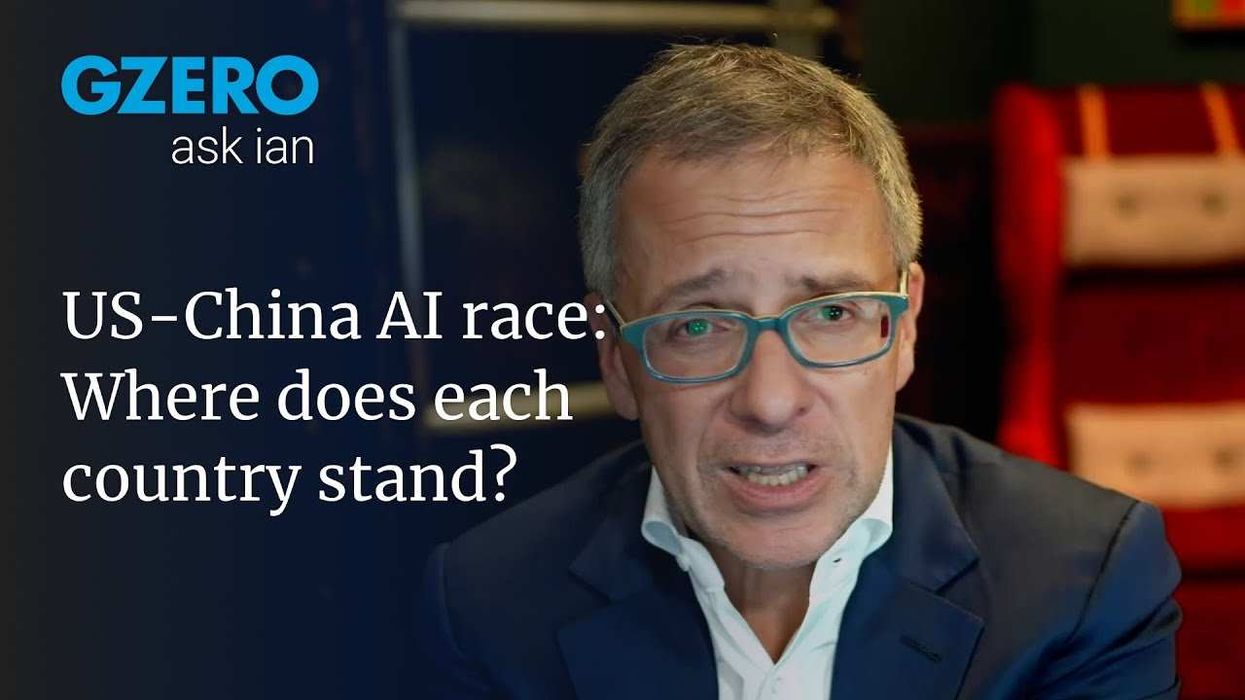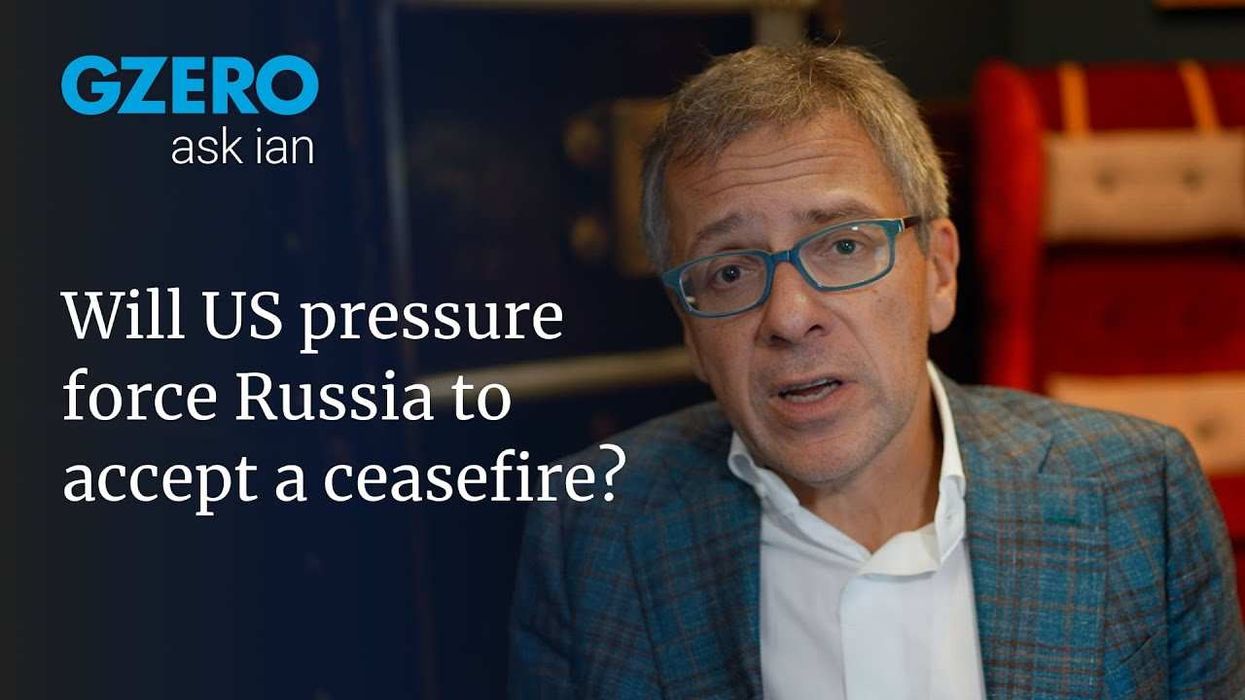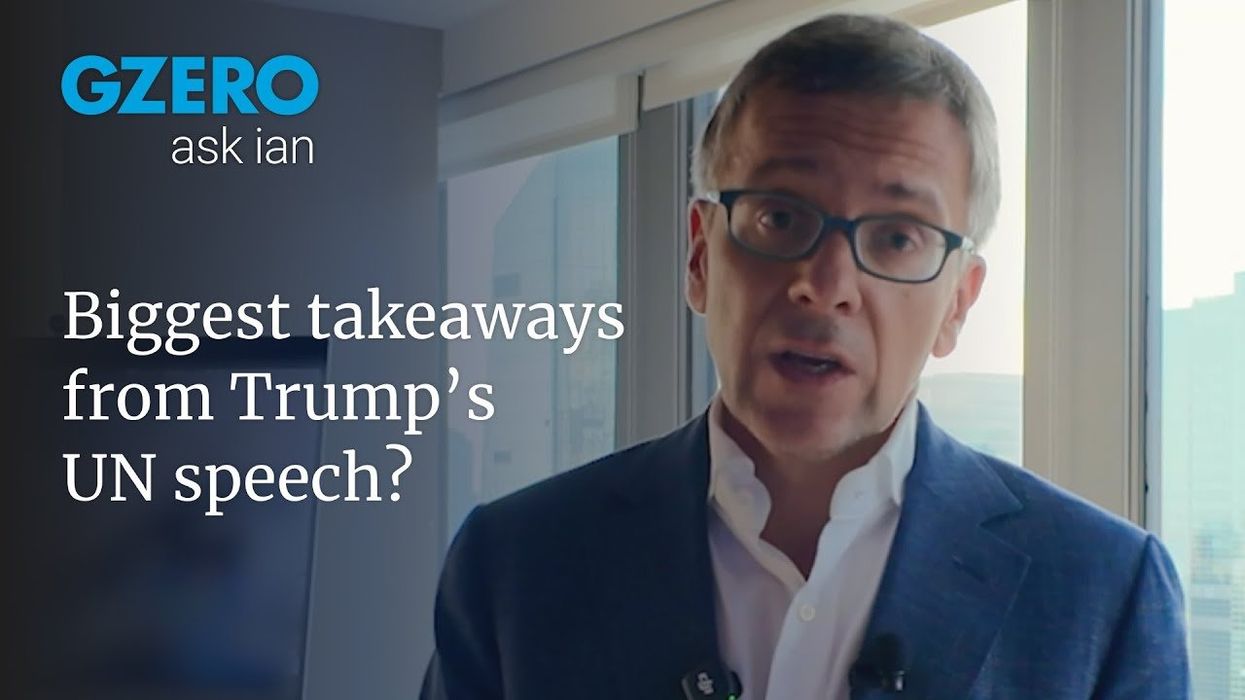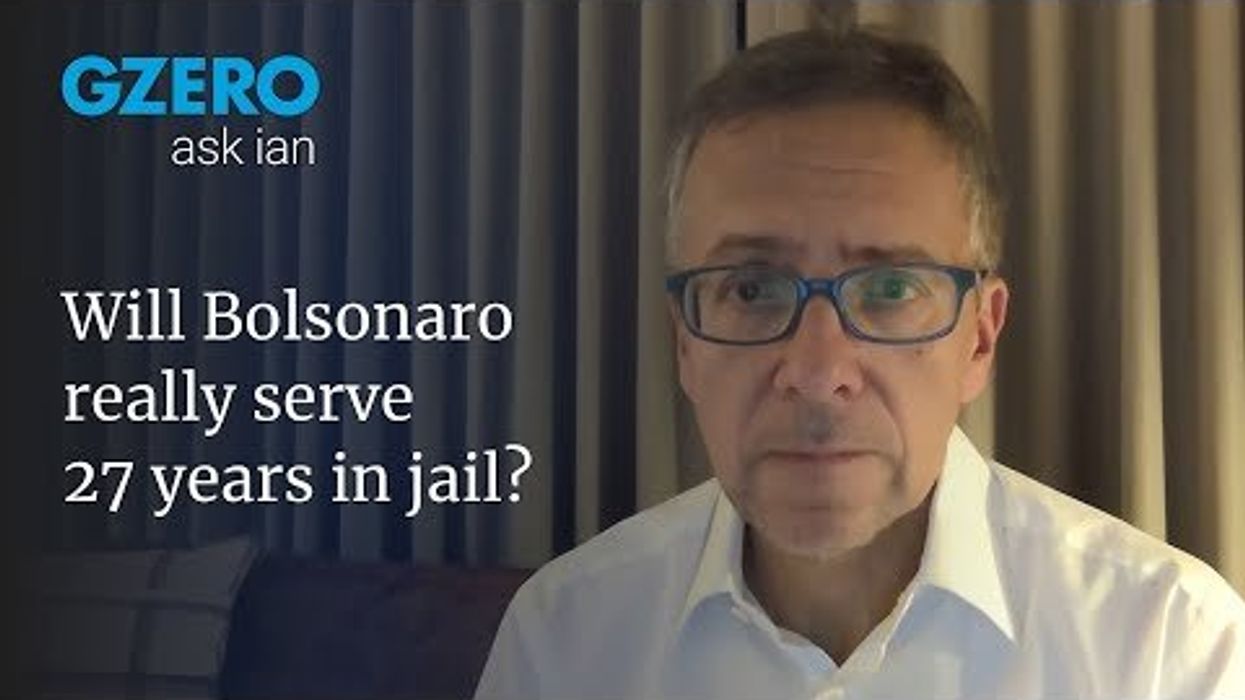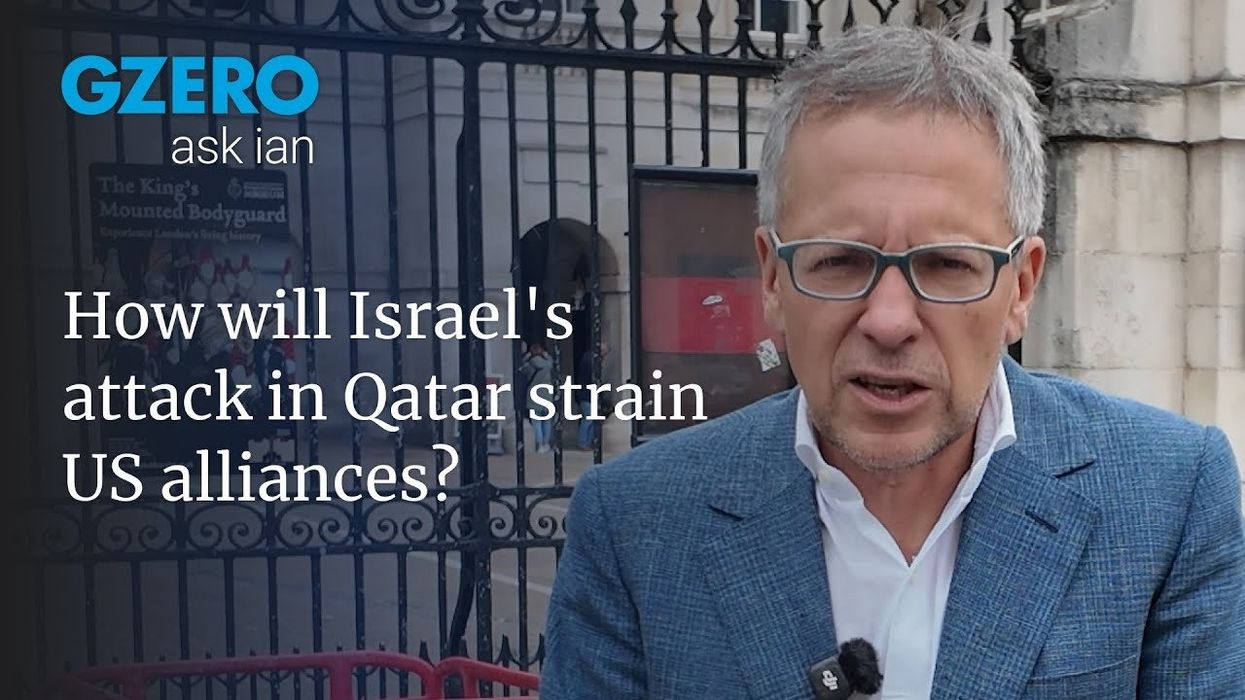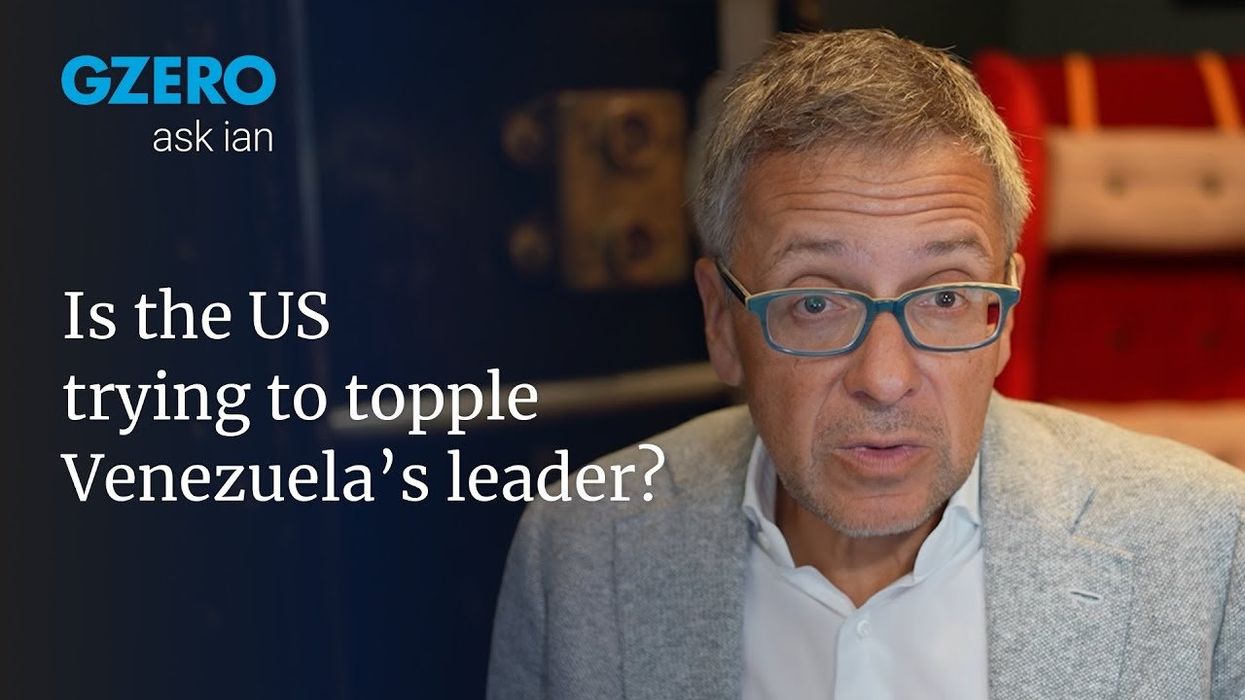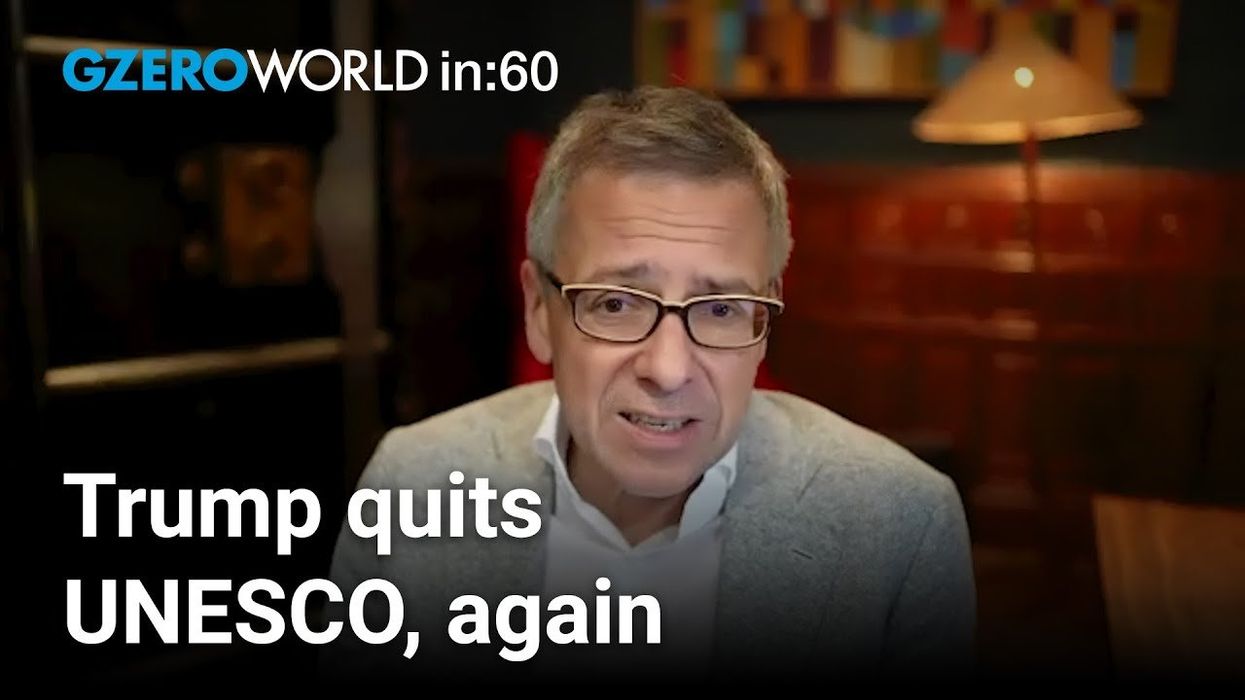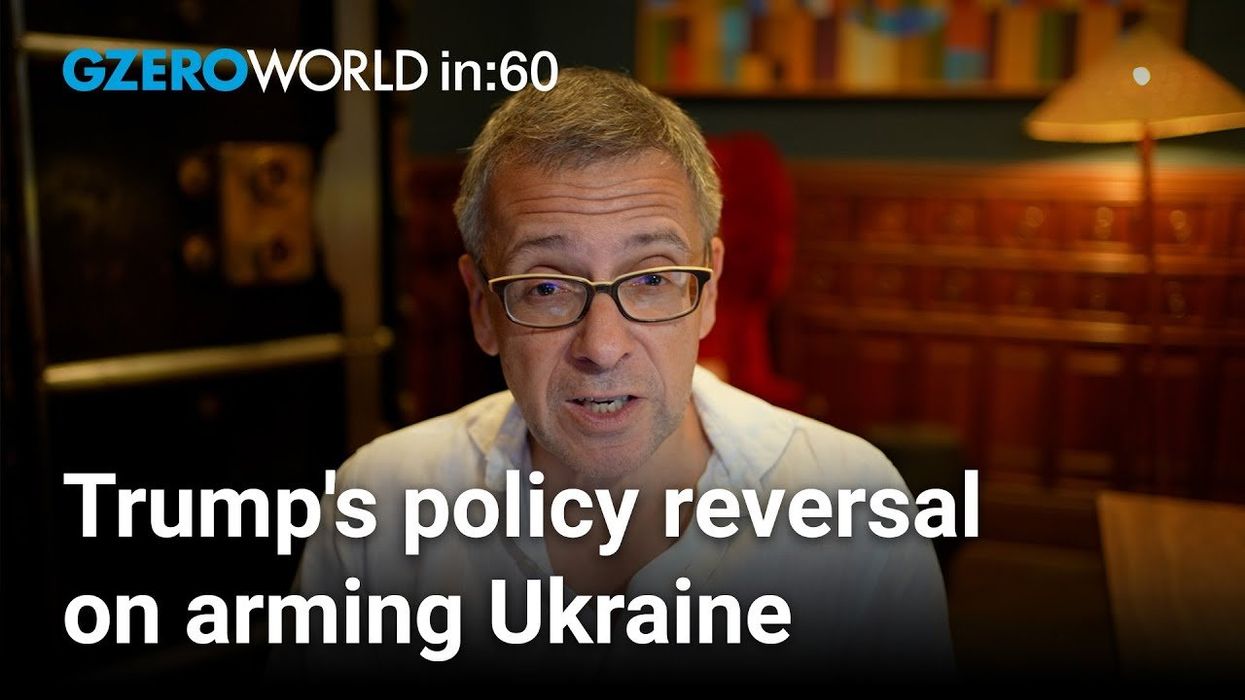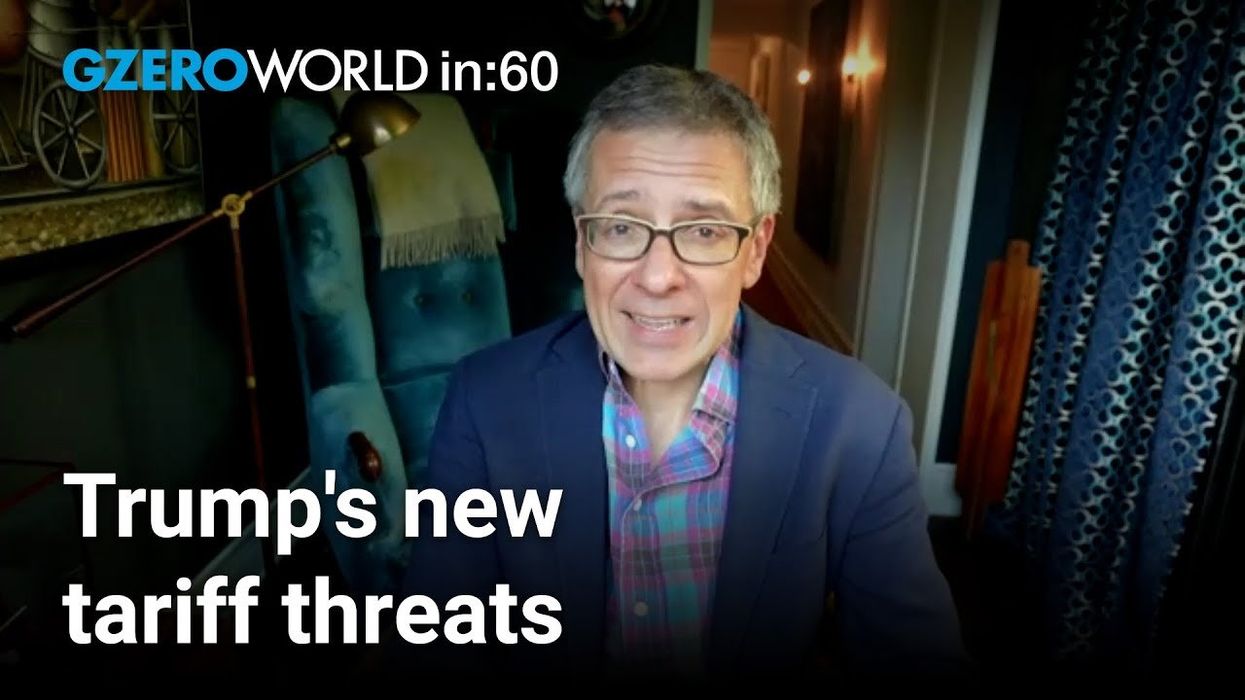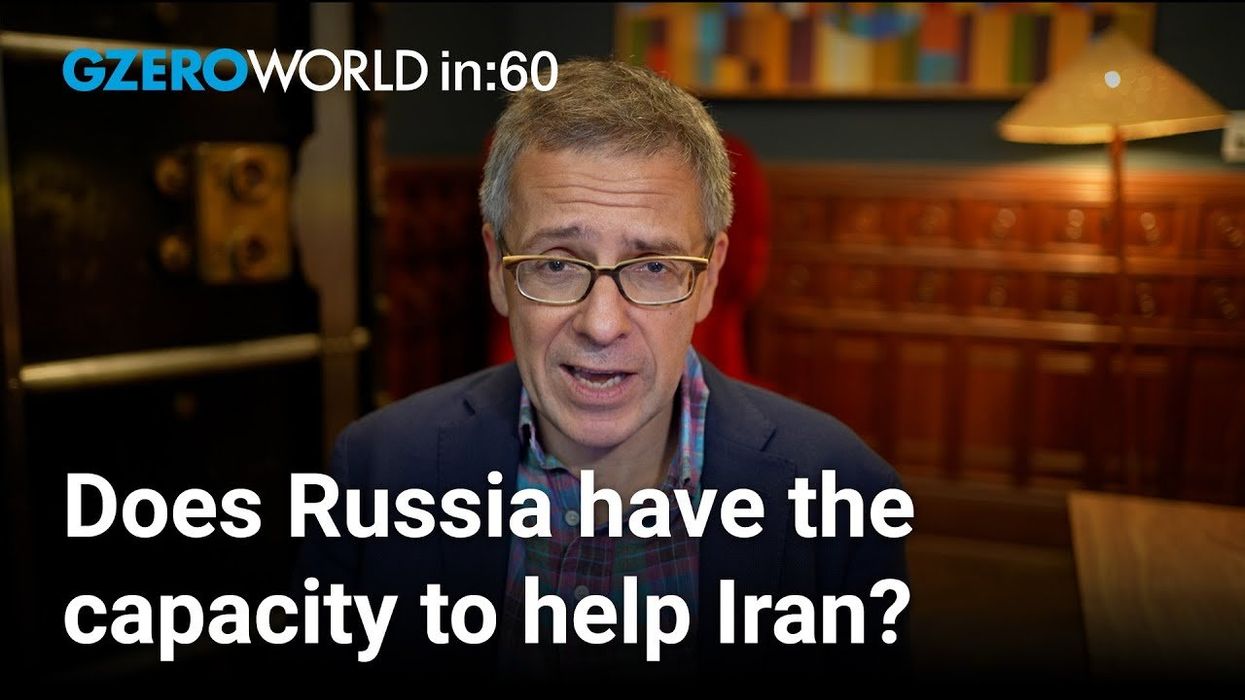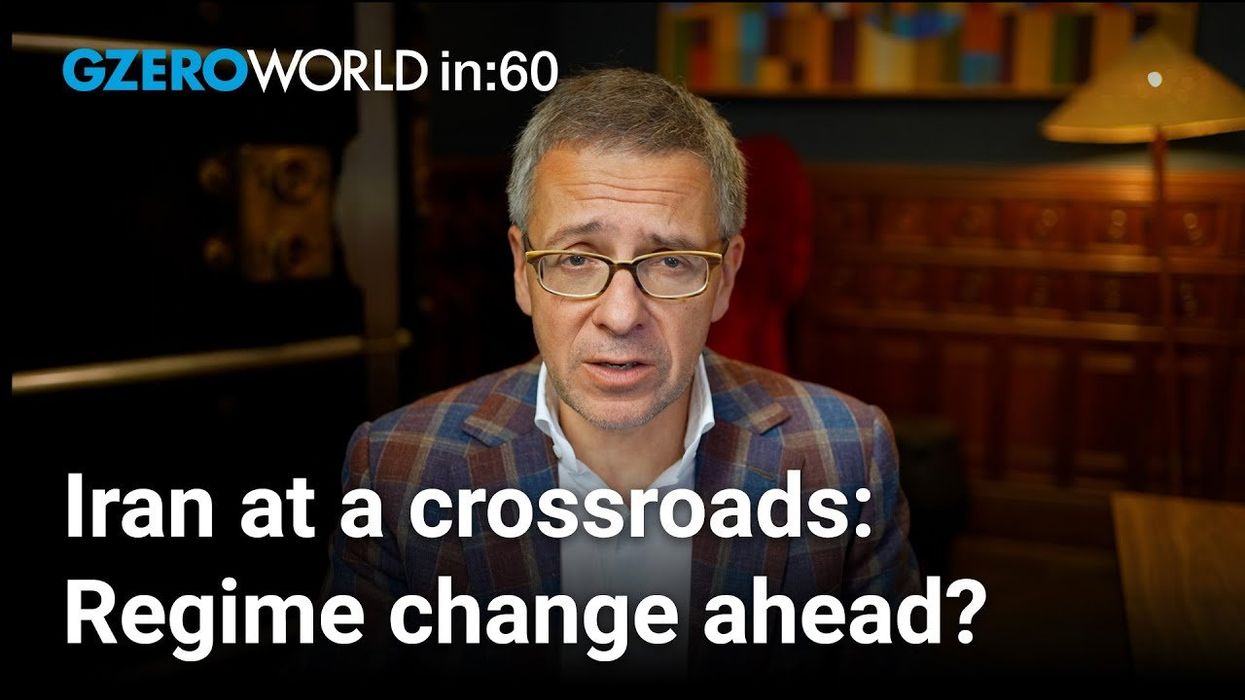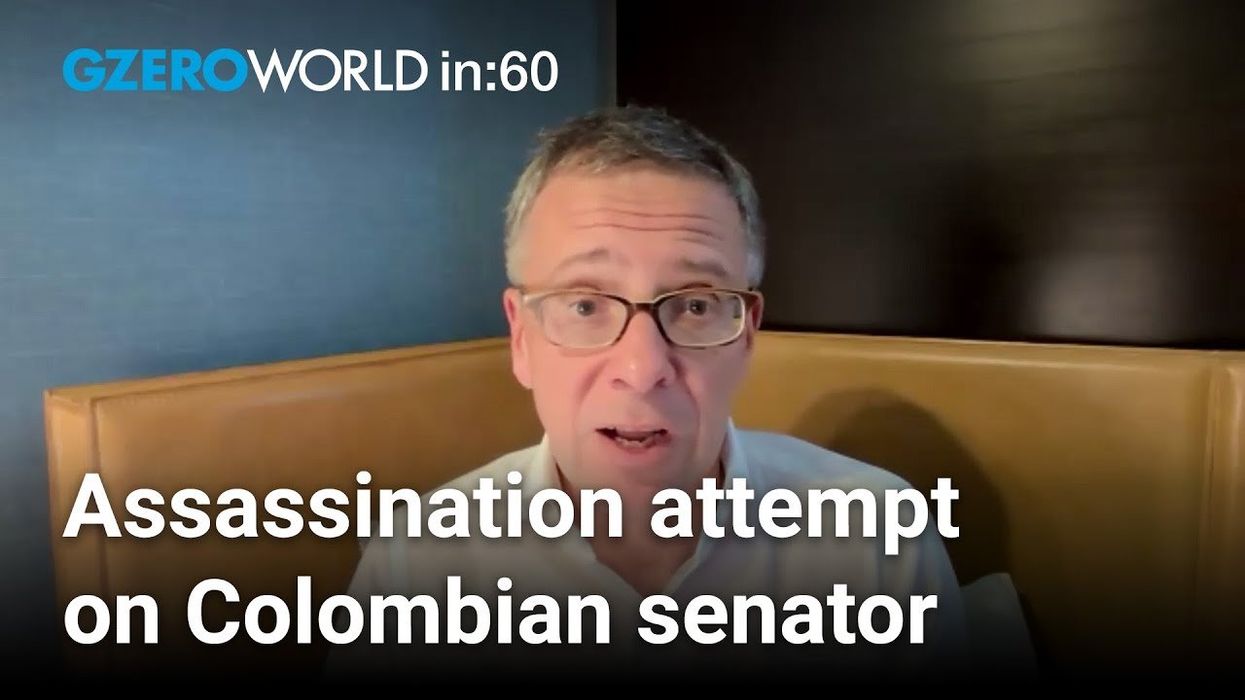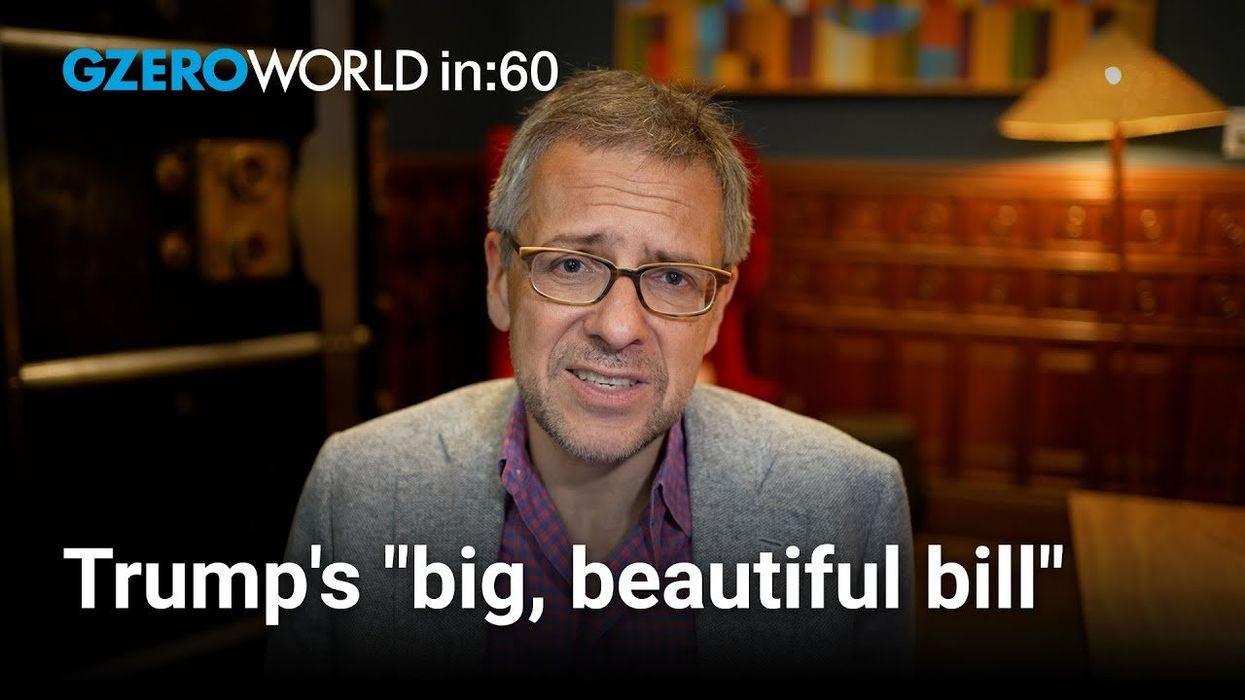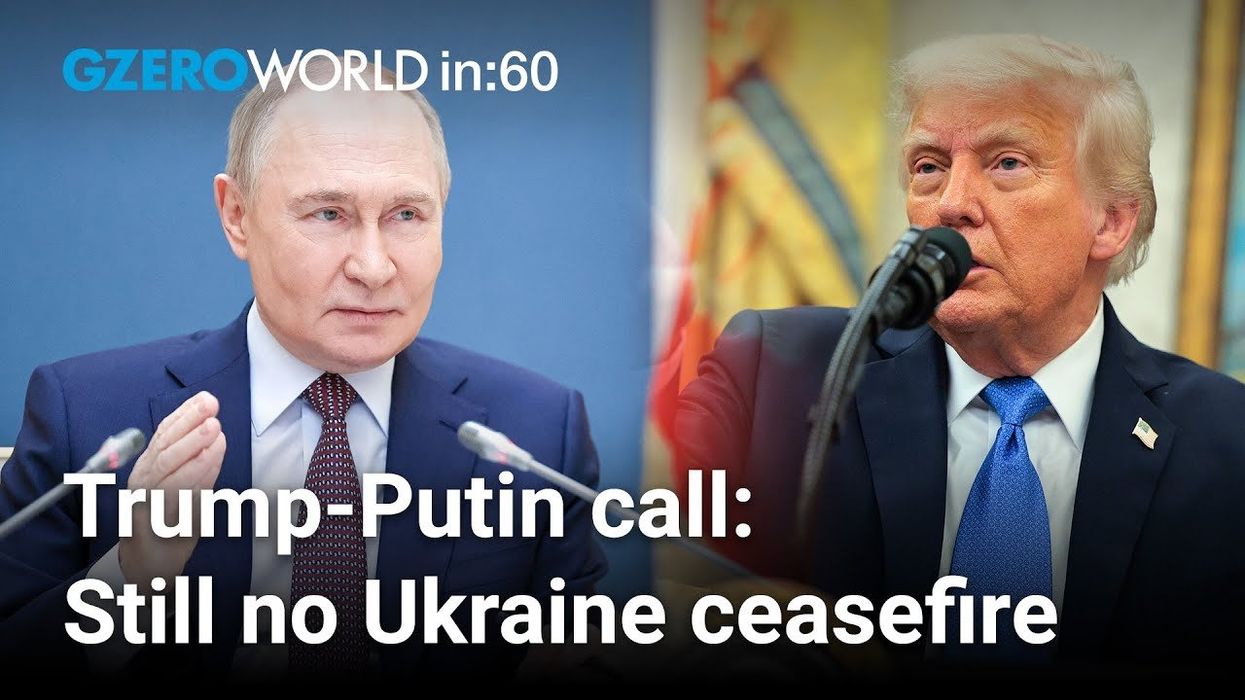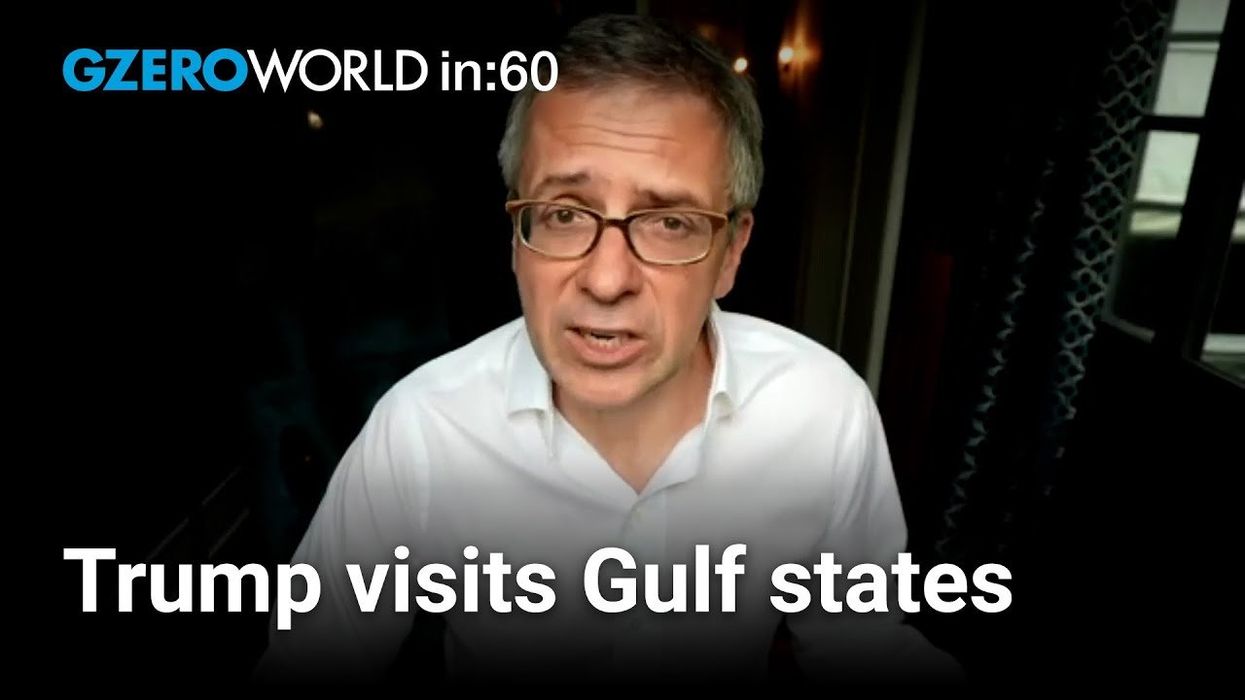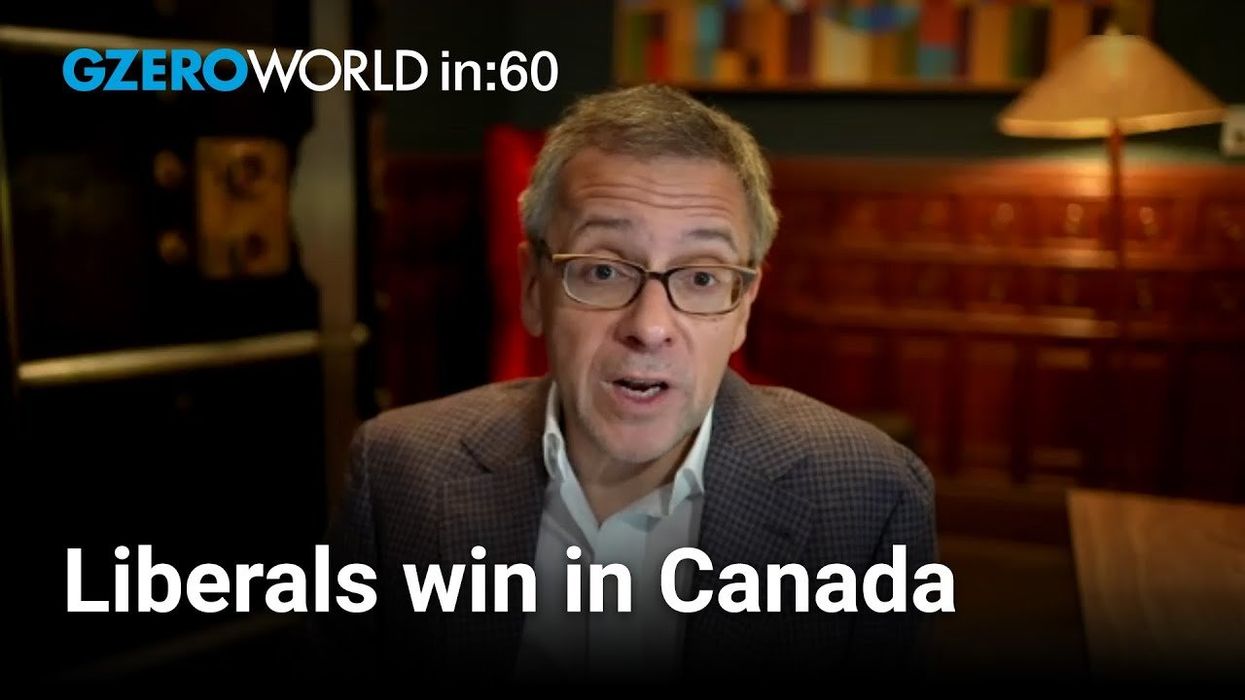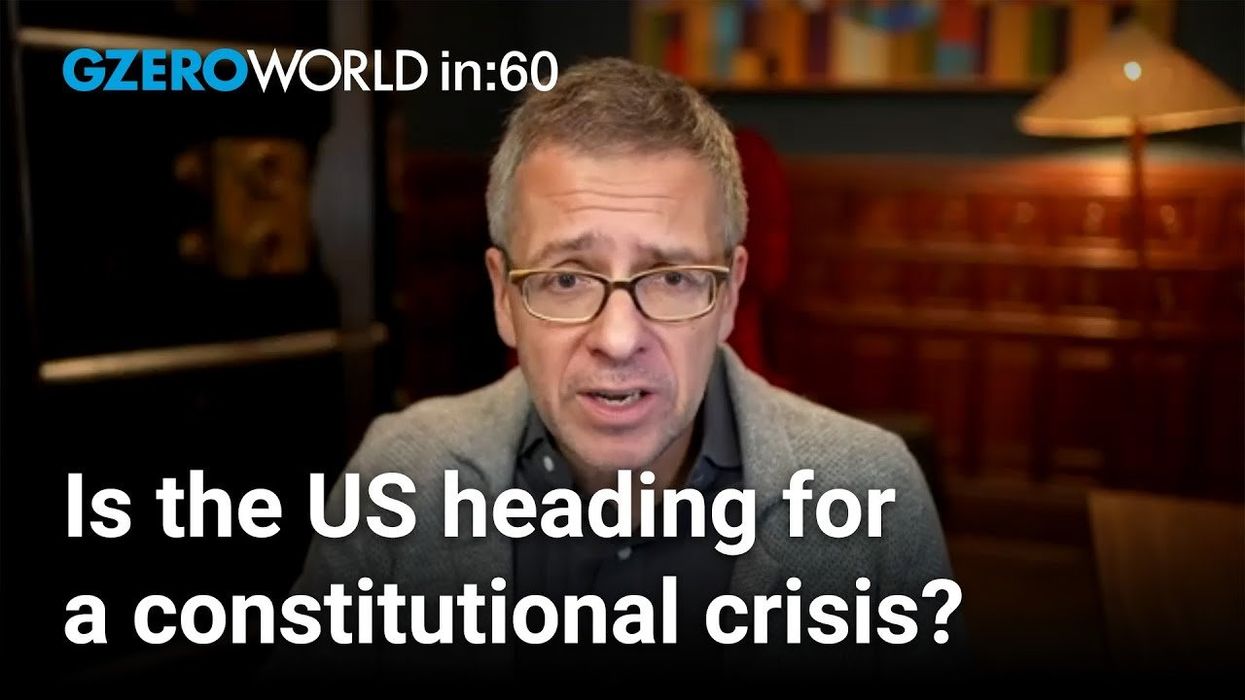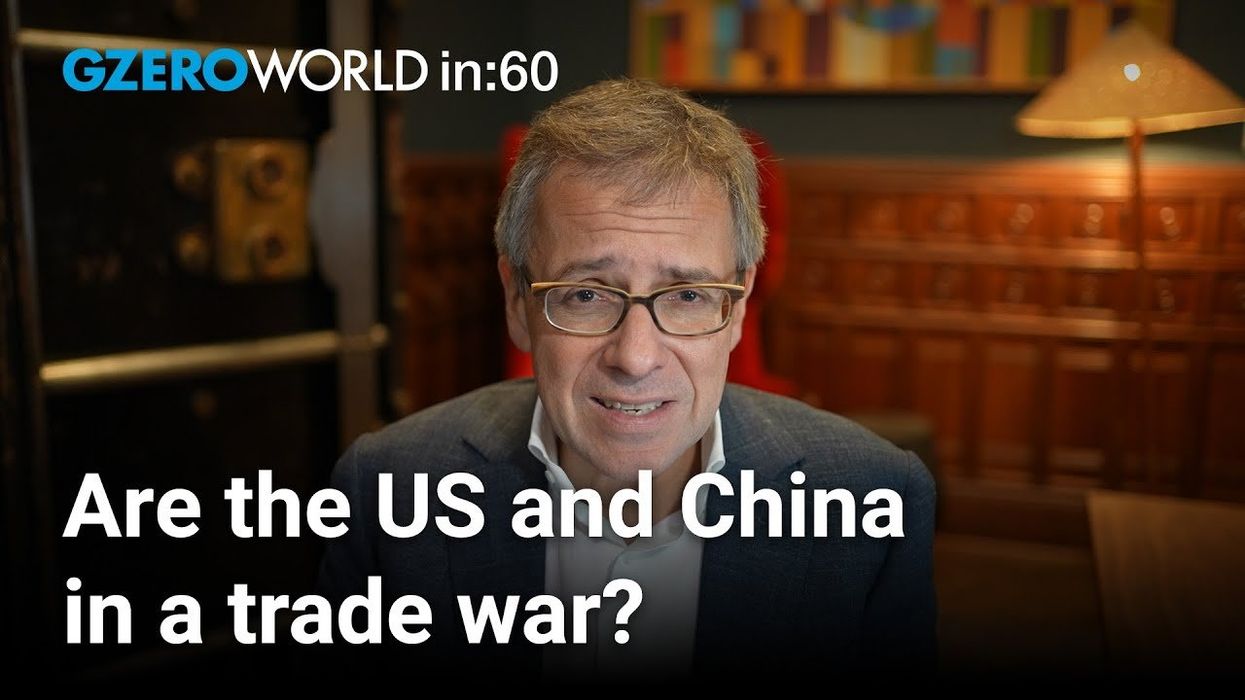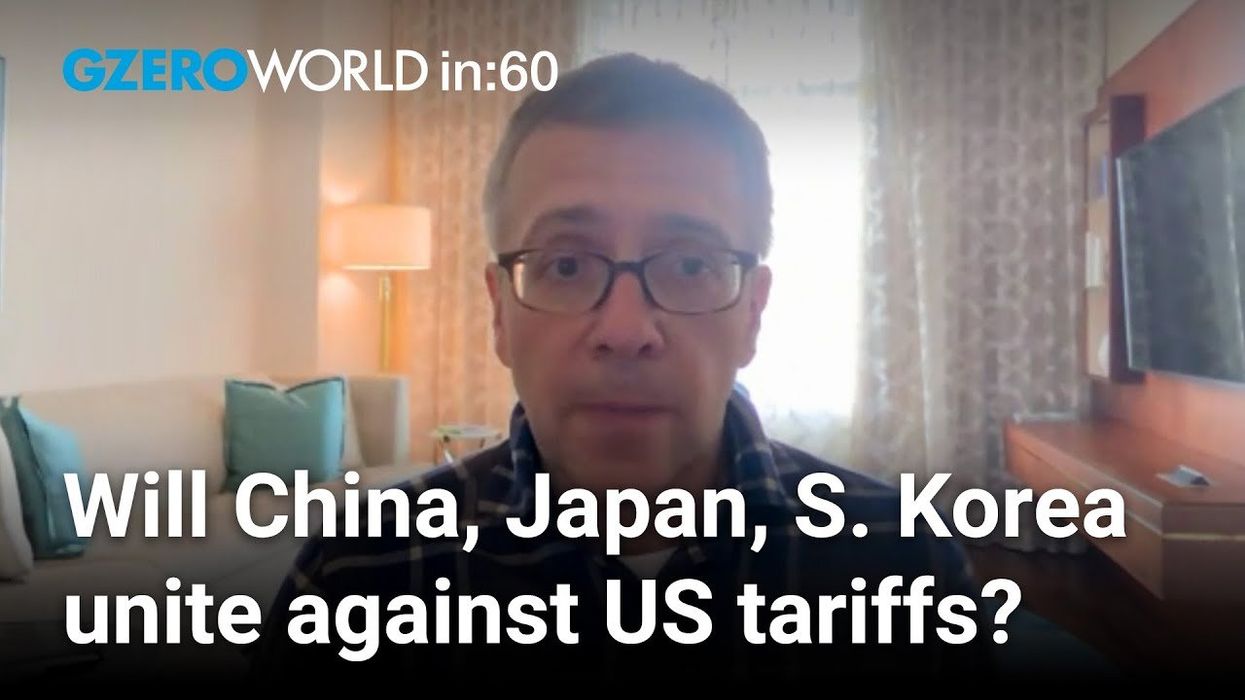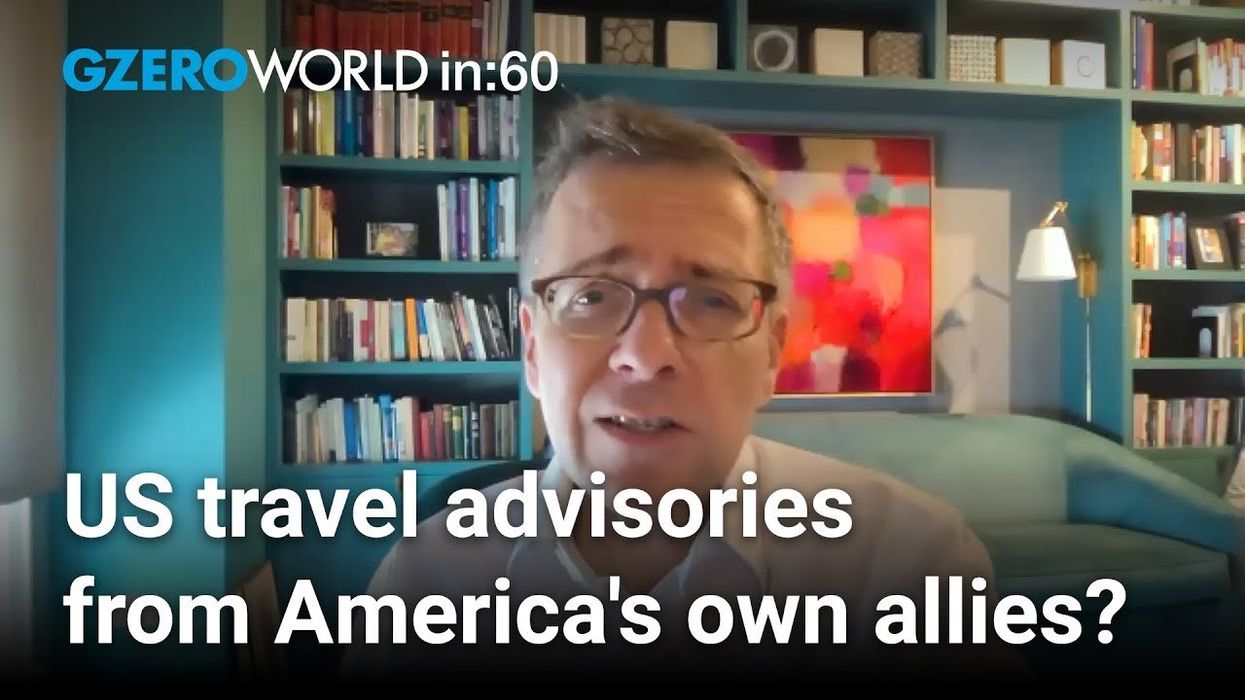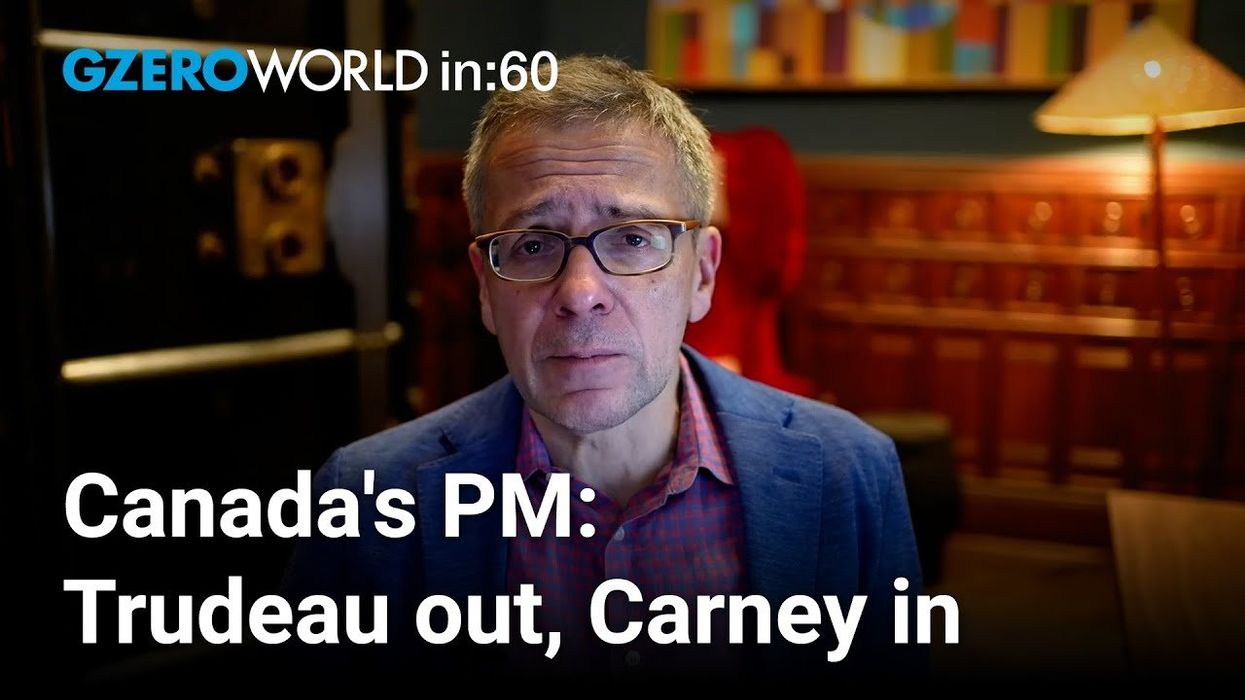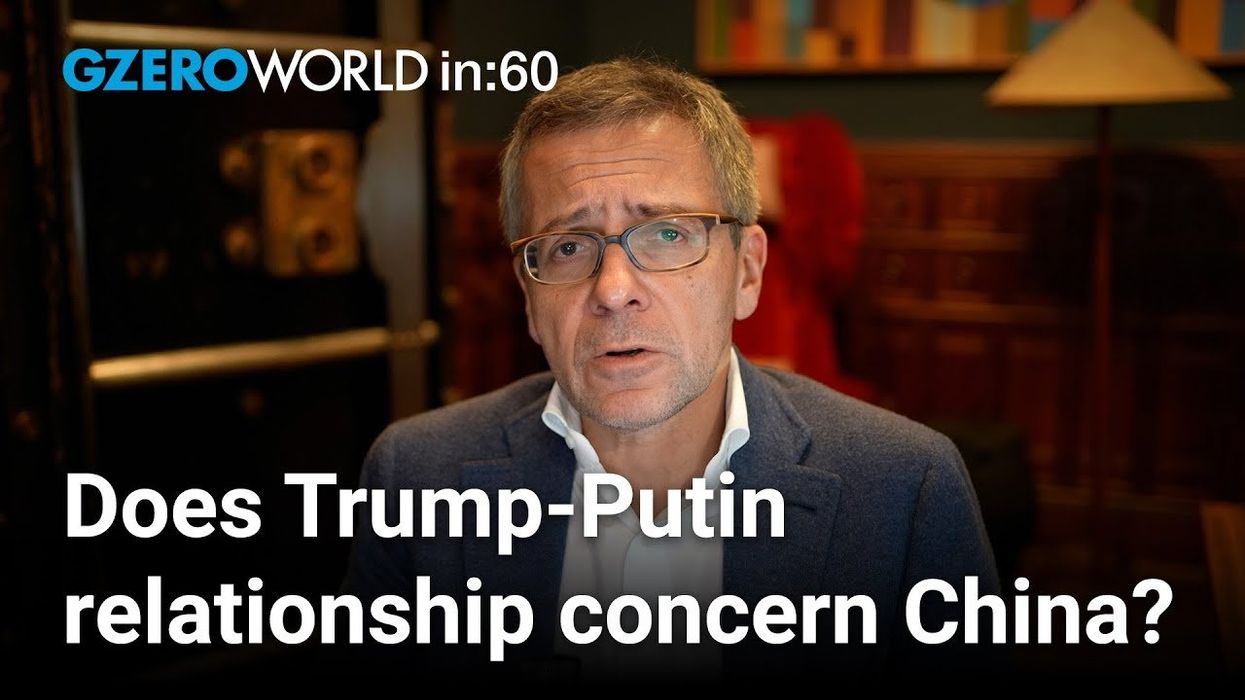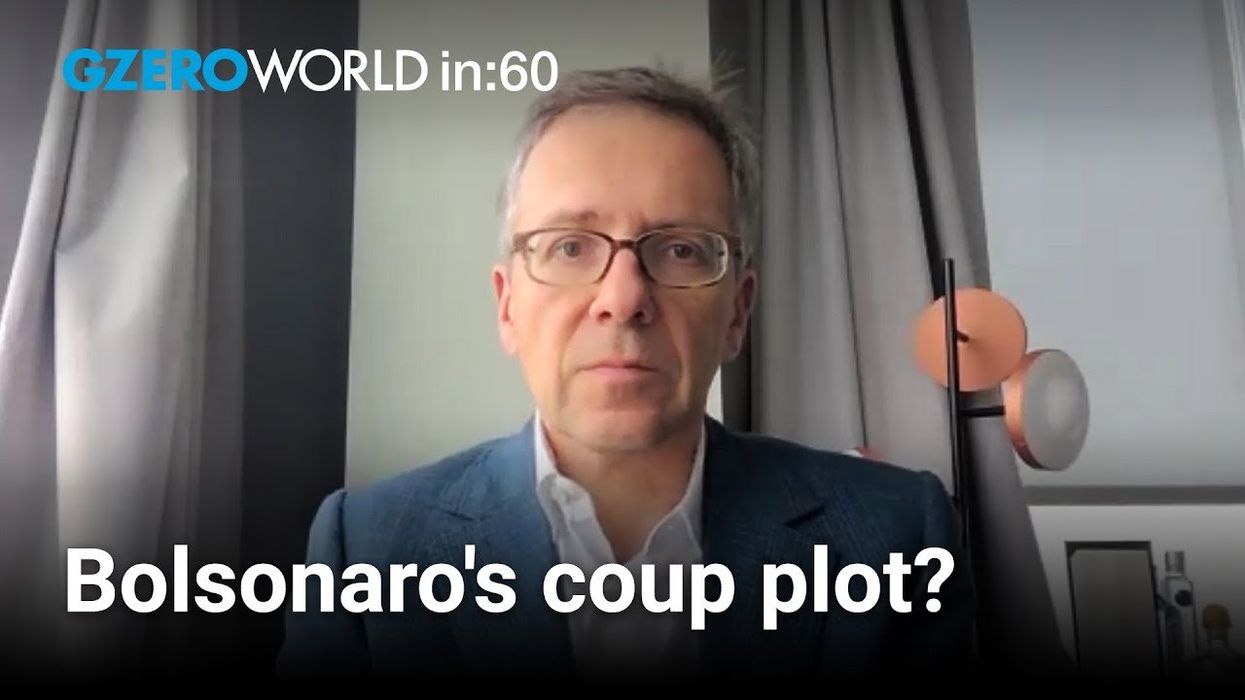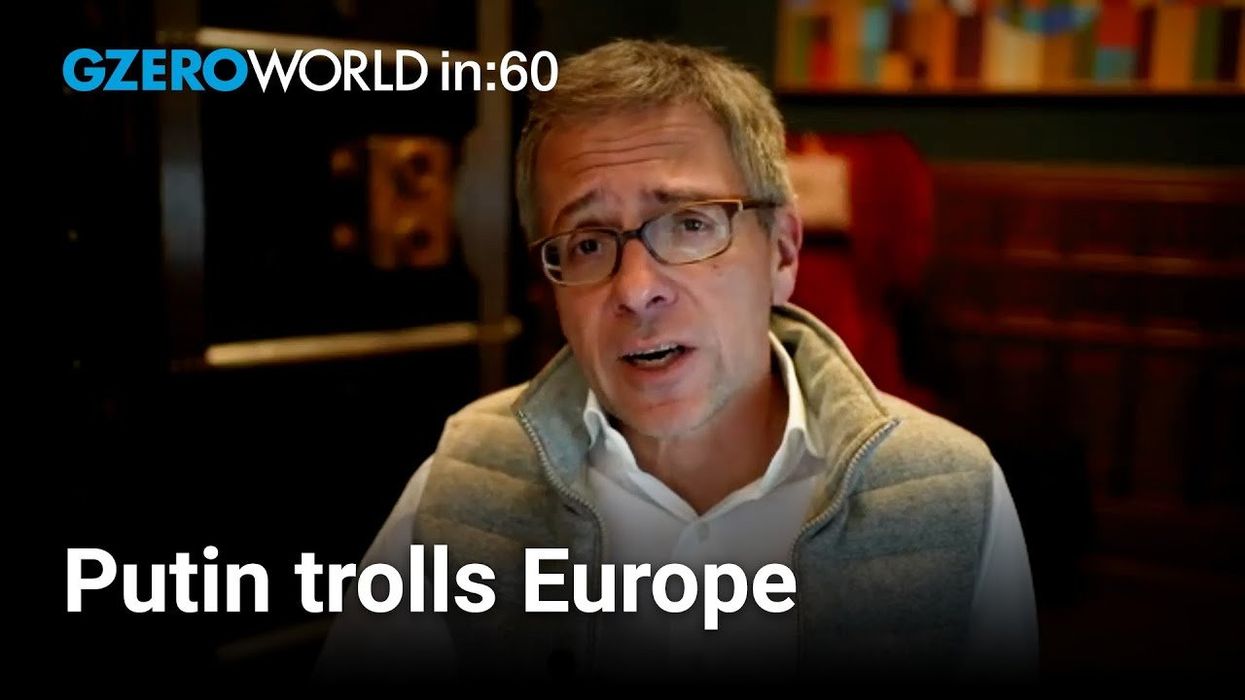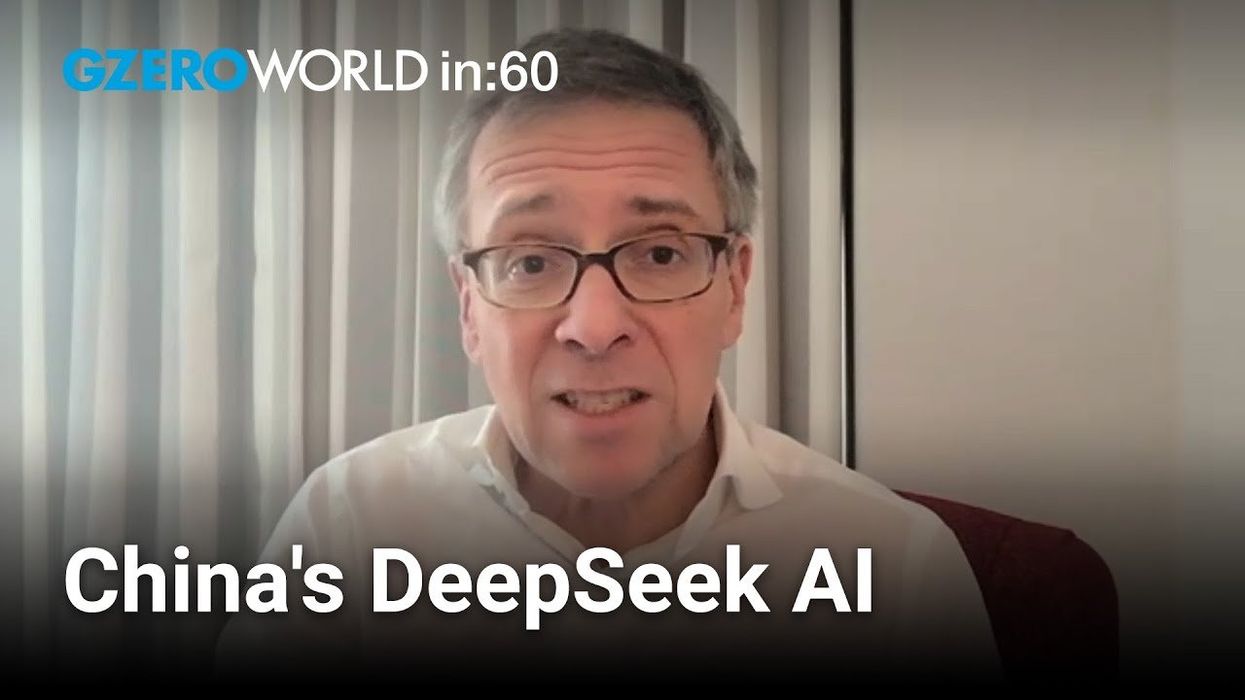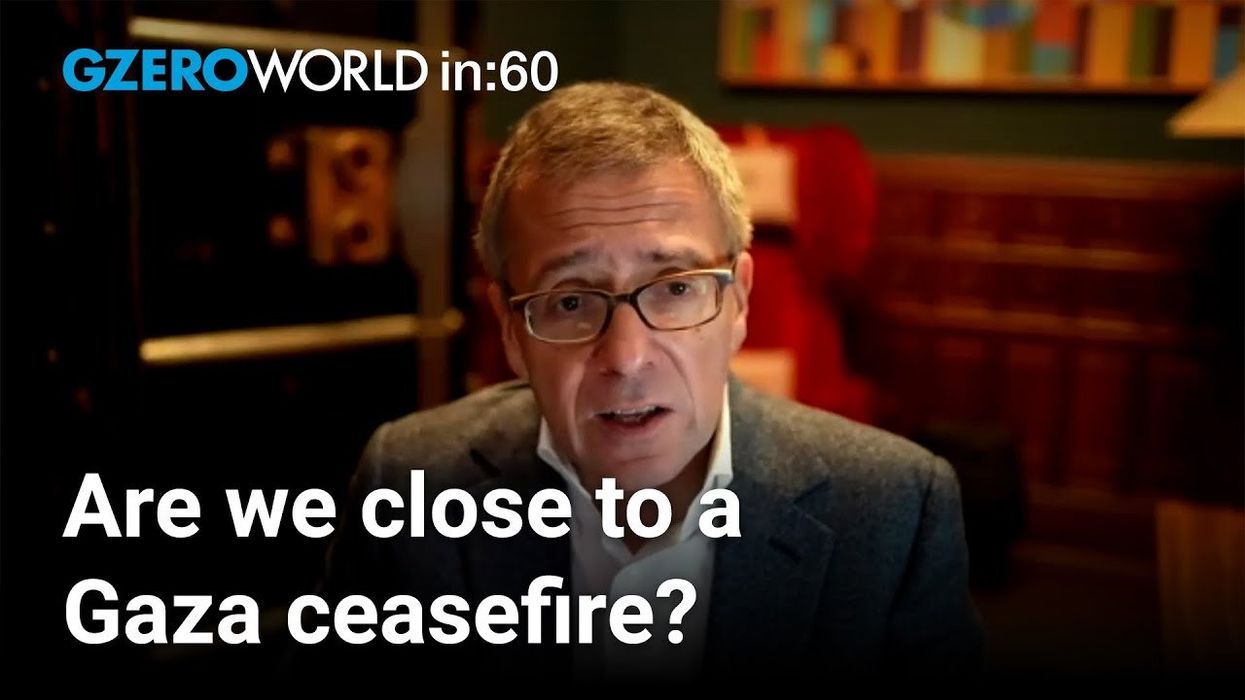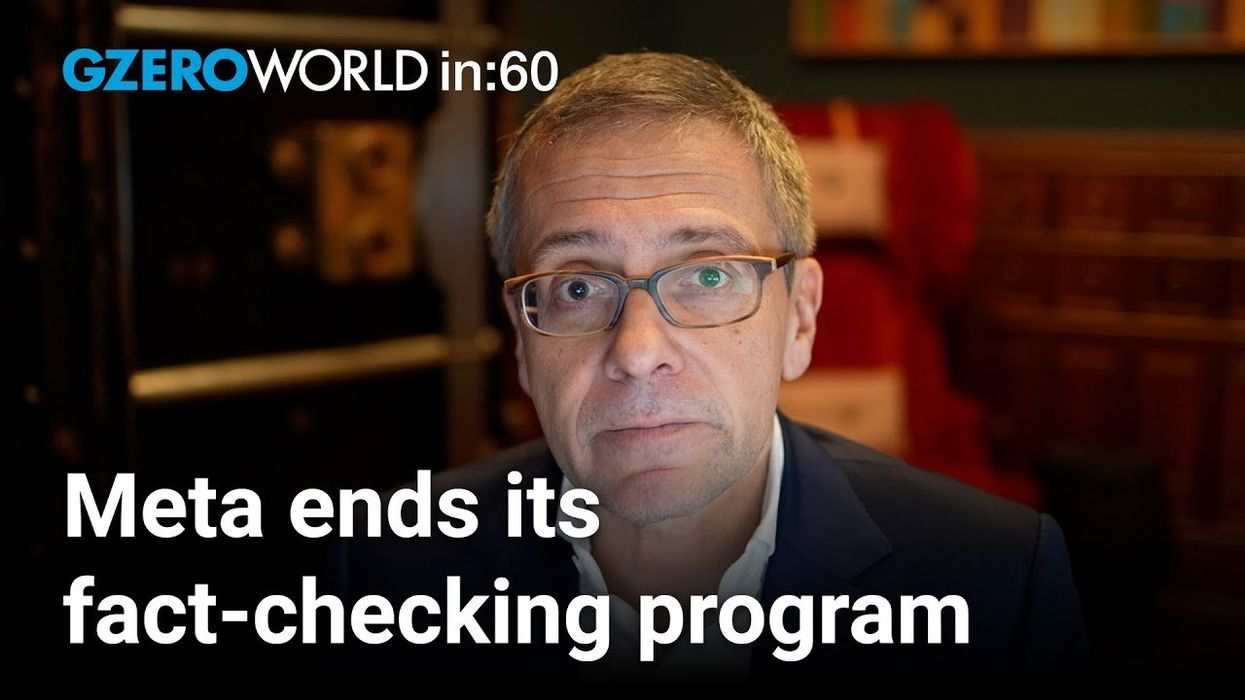VIDEOSGZERO World with Ian BremmerQuick TakePUPPET REGIMEIan ExplainsGZERO ReportsAsk IanGlobal Stage
Site Navigation
Search
Human content,
AI powered search.
Latest Stories
Start your day right!
Get latest updates and insights delivered to your inbox.
With Marcos Jr. about to win the presidency, how will his leadership change the Philippines? Sri Lanka's prime minister resigned. Will its president be next? Is Sinn Féin's victory a sign that a united Ireland is closer? Ian Bremmer shares his insights on global politics this week on World In :60.
With Marcos Jr. about to win the presidency, how will his leadership change the Philippines?
Well, it was a big win, almost 30 points over his opponent, and the first time we've seen an absolute majority in Philippines history for the presidency. Not huge changes expected in governance. Let's keep in mind that the vice president is actually the daughter of President Duterte, who's just leaving power. The president and the vice presidents here are actually... Those elections are held separately, and so you can have different parties that actually win, and frequently do, which is sort of an unusual twist to the Philippines. Pro-foreign direct investment, generally pro-markets, a little bit more of a US and Western tilt as opposed to Duterte, whose military really was skeptical of China, but he personally was more engaged with Beijing. The big question is what's the cabinet going to look like, how independent, how technocratic, or is there going to be a lot of corruption, a lot of kleptocracy? Keeping in mind that Bongbong, the new president, is the son of Ferdinand and Imelda Marcos, who were drummed out for an extraordinary abuse of power in the Philippines before. So what everyone's going to be watching.
Sri Lanka's prime minister resigned. Will its president be next?
Well, I mean, since we're talking about kleptocracy, let's keep in mind that the president is the younger brother of the now resigned prime minister, and they've let go a bunch of... You've got the ministers of finance that have been sort of a revolving door recently. This is the worst economic crisis of Sri Lanka's history. And it's led to a lot of demonstrations, mass protests, a lot of violence, and that's why the PM is gone. But there's also a state of emergency. The military, the police are out in force, the president clearly trying his damnedest to avoid having to step down. And the real question is going to be how explosive the situation on the ground is. Could this become sort of a mass-driven coup, and might you see some splits in the military as a consequence of that?
Is Sinn Féin's victory a sign that a united Ireland is closer?
Well, yeah, of course it's closer in the sense that you now have a party, a Catholic party, that's won for the first time, more history, in Northern Ireland that is interested in a unionist position on Ireland. And Brexit of course did set this off, but a strong majority of citizens in Northern Ireland do not support even a referendum on unification, and certainly don't support unification, though Sinn Féin has said that they'd like to have such a vote within five years. More importantly is that this is going to be used, the Sinn Féin victory, by Boris Johnson and his Tory government to push for changing the rules agreed with the European Union in the breakup, on the border between Northern Ireland and Ireland, Northern Ireland and Europe. And that has the potential to really disrupt, further disrupt, UK-EU trade over the course of the next 12 months. So in the near-term, that's the problem. In the long-term, no question there's more pressure on political devolution and disillusion in the not so United Kingdom.
Keep reading...Show less
More from ask ian
Trump, loyalty, and the limits of accountability
December 16, 2025
Notre Dame, politics, and playing by their own rules
December 08, 2025
Trump threatens regime change in Venezuela
December 02, 2025
Is Trump’s trade strategy backfiring abroad?
November 25, 2025
Ian stands in line for a bagel, the internet melts down
November 21, 2025
Could Trump have handled the Epstein issue any worse?
November 17, 2025
Democrats divided over government shutdown deal
November 11, 2025
Zohran Mamdani and America's political future
November 04, 2025
Trump, Xi, and the new US–China standoff
October 14, 2025
US-China AI race: Dueling strategies and potential risks
October 07, 2025
Trump shifts on Russia: From carrots to sticks in Ukraine war
September 30, 2025
Trump’s UN speech: Sovereignty, security, and ending wars
September 23, 2025
Israel attacks and targets Hamas leadership in Qatar
September 10, 2025
US strike on vessel from Venezuela
September 03, 2025
Trump pulls US out of UNESCO, again
July 22, 2025
Trump announces new plan to arm Ukraine
July 15, 2025
Are NATO allies aligned on Iran?
June 24, 2025
Will Iran’s regime survive?
June 18, 2025
Trump-Musk rift over Trump's "big, beautiful bill"
June 04, 2025
What is Trump after in his latest Gulf states tour?
May 13, 2025
Why Mark Carney’s victory won’t heal the US-Canada rift
April 29, 2025
Trump tariff is starting a US-China trade war
April 08, 2025
What if Japan & South Korea sided with China on US tariffs?
April 01, 2025
US travel warnings issued by its closest allies
March 25, 2025
US-Canada trade war helps Mark Carney's election prospects
March 11, 2025
Why Trump won’t break the Putin-Xi alliance
March 04, 2025
Will Trump & Musk punish Brazil over Bolsonaro indictment?
February 19, 2025
Putin trolls Europe about "the master" Trump
February 04, 2025
DeepSeek puts US-China relations on edge
January 30, 2025
Gaza ceasefire likely as Biden and Trump both push
January 14, 2025
Meta scraps fact-checking program: What next?
January 07, 2025
GZERO Series
GZERO Daily: our free newsletter about global politics
Keep up with what’s going on around the world - and why it matters.

